#kwanza
Text
Merry Christmas ya filthy animals!
And a big shout out to all the authors and illustrators who’ve helped deck their fandoms in holiday festivities!
I wish a very happy holidays to everyone who celebrates!
#happy holidays!#ao3 shenanigans#fandom#farart#fanfic#writing#art#holidays#hanukkah#kwanza#Yule#christmas
381 notes
·
View notes
Text

[Text: This user hopes anyone spending time with abusive family for Kwanzaa gets through it okay.]
Like/Reblog if you save or use!
#userbox#did#system#did system#osdd1#osdd1 system#kwanzaa#kwanza#anti endo#endos dni#mod morpho 🦋#holiday userboxes
98 notes
·
View notes
Text
Why you don't know anyone who celebrates Kwanzaa
"Because no one cares"
"Because it's a sham holiday made by a con artist"
"Because it's dumb"
"Because no True African would ever celebrate Kwanzaa."
These are all bad faith arguments. They aren't meant to actually explain why, and do more to devalue the holiday as well as people who celebrate it or at least respect it.
So, why don't you know people who celebrate Kwanzaa? After all, you have so many Black friends, or maybe even you are Black yourself, shouldn't Kwanzaa be everywhere?
This post is a bit long, and some points are explored more deeper than others, but I think this will provide an explanation that's actually pretty fair and common sense. The short version:
Kwanzaa is a newer, anti-consumerist holiday that does not appeal to every single Black person. And that's okay!
1. Kwanzaa is a newer holiday.
Kwanzaa is only about 60 years old. It's not going to be as popular as Christmas. Other holidays, say Veteran's Day, Memorial Day, or Martin Luther King Jr. Day are about as old or even younger than Kwanzaa, so why are they celebrated more widely? Well, it helps that they're all federal holidays with a state structure to back them up. Individual people can celebrate those holidays, but they don't have to, institutions celebrate them for us by giving us time off work and making a public statement (maybe a donation or two). Other than that, those holidays are largely upheld by community events, just like Kwanzaa (more on this later).
The types of family traditions we associate with Christmas take generations to build. Even other older holidays like Mother's Day don't have any real traditions inherently associated with them--we all give our moms a gift but beyond that, everyone engages with it differently.
New holidays need time to catch on. Institutional structures help speed that process along, but Kwanzaa doesn't really have that. So it's going to be slower than others in terms of attracting people.
2. Kwanzaa is anti-consumerist inherently.
In America, consumerism makes up a very large part of how people engage in holidays. Note that I'm not saying "people only celebrate other holidays for consumerist reasons", I am saying that a lot of the driving forces that 'remind' us to take holidays seriously in the US are market forces. We're inundated with advertisements, sales, and decorations that help create a 'feeling' of the holiday (be it Christmas, Valentine's Day, Halloween, etc) which also make it easier to engage with the holiday. We can get the supplies we need at the store. If we don't have plans then there's probably a business throwing a party around that time to keep us entertained. Gift-giving and feast preparation is expressed through buying products en masse so we prepare financially. Holiday specific media sculpts our collective understanding of the holiday's themes even if we don't engage directly.
Kwanzaa, as an explicitlyanti-consumerist holiday, doesn't lend itself to that level of cultural zeitgeist in the US. People exchange gifts and decorate places for Kwanzaa, but commerce during Kwanzaa is typically kept within Black communities through dealing directly with (small) Black Owned businesses. Given that most corporations in the US are white owned, there's very little reason for the market structure to incentive our continued engagement in Kwanzaa. The passive acknowledgement that it's a holiday that exists is the most we can really hope for.
Imagine Halloween without candy sales, Spirit Halloween stores, Halloween parties or costume nights at our favorite restaurants and bars. Imagine no horror movies coming out in October! In a world like that, I and many other people would still celebrate Halloween, but it wouldn't be as easy, and a lot of people probably wouldn't acknowledge it at all, because it isn't as easy.
Kwanzaa explicitly resists the market forces that help holidays stay in our daily lives. We all value our holidays beyond those forces, but we can't deny the very heavy role they play. We can argue that such market forces are morally neutral or even good, but not in this post--whatever your view of holiday consumerism, it's critical to understand that Kwanzaa was organized specifically for people who don't appreciate such consumerism.
3. Kwanzaa does not appeal to all Black people equally.
I think this is one of the hardest points for people both within and outside the community to grasp. The holiday is for Black people, and is meant to appeal to as broad a sampling of Black people as possible. That doesn't mean it will appeal to everyone, though.
The target audience for Kwanzaa is Black people, regardless of nationality, who believe in a shared political unity, heritage, and cultural engagement of all Black people regardless of nationality.
Thing is, not all Black people believe in or value those things. Not all Black people are Pan-Africanist, Afrocentrist, or Black Nationalist, or any other Negritude philosophy. These philosophies are widespread in politics and scholarship, but outside of those dimensions of life engagement with them gets complicated.
You may have heard that "no Africans celebrate Kwanzaa" this is largely true because Africans live in families and communities where their African heritage is already affirmed through other means, including other holidays. Kwanzaa therefore doesn't appeal to them, even if they do believe in all it's themes. Such people may go to Kwanzaa events if invited, but they likely wouldn't hold them for themselves.
Many in the African Diaspora understand their identity most immediately by the region they settled in, and only have a distant sense of African identity. They don't deny being African or having African heritage, but they see being Caribbean, or Brazilian, or American as more relevant. Kwanzaa therefore doesn't appeal to them as it's not specific enough.
Kwanzaa is not closed to any Black demographic and actively encourages all of us to celebrate it. But not all of us will find it appealing.
I would compare Kwanzaa to a holiday like Easter--its a Christian holiday meant to appeal to all Christians equally. But if you aren't church-going and have no children in the family, you probably don't celebrate Easter to any meaningful extent, or your engagement is so personal that it isn't considered very mainstream or traditional.
The point I'm trying to make is: holidays aren't guaranteed to appeal to everyone in their target demographic. Though the reasons why diverge, not every Christian celebrates Easter, not every Black person celebrates Kwanzaa.
4. Communal Kwanzaa celebration is more popular than in-home, but that also carries some drawbacks to it.
Whenever people interested in celebrating Kwanzaa ask me how to get started, I often tell them to look into community celebrations. They're usually put on by churches (perhaps even mosques), community centers, cultural activity groups, or political groups. And therein lies the problem--if you don't live in close proximity to that type of Black community, or the community is invisiblized, then even if there are communal Kwanzaa celebrations to check out you probably won't know about them.
You can't just ask a random Black person about a Kwanzaa event, typically. My advice is to tell people to check out a Black bookstore (and, if available, an African cultural store or an Afro spiritual store). The types of people organizing Kwanzaa events are usually those deeply enmeshed in cultural and political Black discourses, particularly those that affirm an African heritage. But such people aren't found everywhere. In my experience, you can find such people and spaces in most major cities, and so a Kwanzaa celebration probably isn't too far away either. Everywhere else, though...
The only other option to find Kwanzaa celebrations, in my experience, are through Black student clubs in colleges. Not all of them do Kwanzaa activities due to many factors (cost, timing, interest, etc), but my undergrad college did and I know that others throughout the country do. However, such activities may not be open to the public (again, for varying reasons -- cost, timing, interest, college policy...).
When people ask about personal celebration, they usually ask about in-home celebration, treating community celebrations or celebrations in schools as less serious or legitimate. Kwanzaa in general is itself rare, but the idyllic in-home celebration is even rarer -- I myself was raised engaging in Kwanzaa almost entirely through community rather than in-home celebrations (though I started doing in-home for myself in recent years).
---
How, then, should we treat people who celebrate Kwanzaa, or even the non-Black people who don't celebrate it but acknowledge it as a valid holiday?
Honestly, I don't get why that has to be a question. Sure, it's a very marginal holiday, but it's also harmless to treat it respectfully and try and make room in your life in case you ever come across someone who does celebrate it.
I made this post because I often see this idea that people were "tricked" about Kwanzaa. I fail to see what harm has transpired. I don't get why people use their lack of awareness of Kwanzaa or Black communities that celebrate it as a "gotcha" that proves Kwanzaa is a scheme. When I do try to understand the logic underlying this, I come back to this idea that holidays and cultures have to earn respect and validation, that being included in our American idea of "Holiday Time" requires that holidays have a certain number of people we already respect, whom would be offended otherwise.
But that isn't a perspective that I share. I can't say how many people need to celebrate a holiday in America before I stop thinking it an insult or a lie that said holiday be included next to Christmas in a holiday greeting; the number doesn't exist because I don't hold Christmas or Hannukah in so high esteem. I value Christmas in as much as I recognize other people value it, the same is true of Hannukah and Yule (and even the pagan witches I've known didn't celebrate Yule). To me, the only thing one needs to be worthy of consideration as one of The Holidays is to simply be celebrated by people around this time of year.
#kwanzaa#kwanza#i spell it both ways when I tag cuz I know a lot of people get it wrong but the extra a is right#black culture#black community#happy holidays
56 notes
·
View notes
Text


Day 43: Mumbo Jumbo telling you a happy [whatever you celebrate around this time]
#daily mumbo jumbo#hermitcraft#mumbo fanart#mumbo jumbo#mumbo jumbo fanart#queued#mumbo#my art#hermitcraft fanart#christmas#chanukah#Kwanza#and so on
63 notes
·
View notes
Text
Now that American Thanksgiving is over and we can think about solstice and Christmas and Hannukah and Kwanza and Sommelier Day, we can start the season with well wishing.
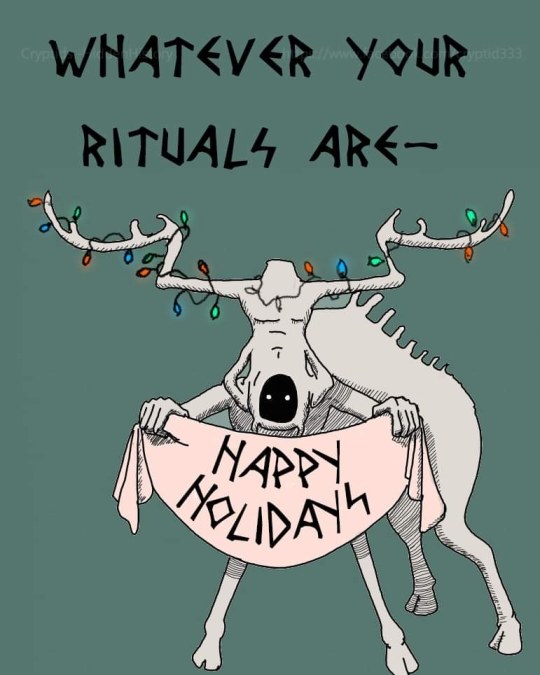
66 notes
·
View notes
Text

Happy Holidays from the light and shadow duo! Wishing you all warm holiday wishes this year and for many more to come!
#happy holidays#christmas#hanukkah#kwanza#winter solstice#kuroko no basket#kagami taiga#kuroko tetsuya#kagakuro#baby no basket#kuroko#kurokaga#kagami#baby kuroko#baby kagami#knb#knb babies#kuroko no basket babies#kuroko no basket fanart#kagami x kuroko#kuroko x kagami
25 notes
·
View notes
Text
I’m not a religious person, but I know there are some holidays I need to wish are happy for some of my mutuals,
HAPPY HANUKKAH
MERRY CHRISTMAS
HAVE A NICE KWANZA
HAPPY WINTER SOLSTICE
YOU ALL DESERVE TO BE RESPECTED AND HAPPY THIS WINTER SEASON AS WELL AS EVERY SEASON
245 notes
·
View notes
Text
Hey babes!
Holiday season is approaching and so is card giving season!! I love sending holiday cards to my friends and loved ones and that's you guys too 👉😎👉 if you'd like a card this December, let me know and DM your address and prefered name! Putting your tumblr blog name may not fly with USPS lol
Love the season of joy and giving!
#fyi#happy holidays#Christmas#hannukah#kwanza#winter solstice#new years eve#nondenominational winter holiday#plus who doesnt love getting mail?!#love yall
19 notes
·
View notes
Text

Happy Kwanzaa to all. 🎉🌞❤️💛💚🖤🦁👑 🕯🥘🍷
#kwanza#happy kwanzaa#kwanzaa#kwanza 2022#kwanzaa 2022#feast#unity#diaspora#heritage#african culture#african american#african america history#african food#hip hop culture#hip hop music#candles#Lions#the lion king#faith#creativity#folk art painting#folk art#jean michel basquiat#basquash#outsider art#corn on the cob#black history#black history month#umoja#childrens book illustration
57 notes
·
View notes
Text
Happy solstice adjacent holidays! Christmas, Yule, Sol Invictus! Happy Kwanza! Happy very late Hanukah! I love you all!
7 notes
·
View notes
Note
Before I took a closer look, I mistook your Christmas avatar for Robot Santa from “Futurama”.
Ganondorf: ~I brought the elves back from vacation,
chained them up,
and called my holiday friends!~
Bowser: ~Kwanza-beast!~
Sephiroth: ~And the Hanukah Zombie~
Ganondorf: ~ Three mad wise men dealing murder and frankencense~
Elves: ~Damn you-do-do~
Ganondorf: Shut up! ~Now fetch those bunnies by the armful~
Elves: ~Says who?!~
Ganondorf: Says me! ~Napalm makes them slightly more harmful!~
~No one here, goes near that door,
This toy shucker's going to war!~
#incorrect super smash bros#super smash bros#smash bros#incorrect quotes#Ganondorf#Bowser#Sephiroth#Christmas#Hanukah#Kwanza#Legend of Zelda#Super Mario#Final Fantasy
45 notes
·
View notes
Text
Kwanzaa 2022-23
I have been celebrating Kwanzaa for 2 years and I noticed that my wisdoms always enhance around and during this holiday. Since it’s such an enlightening holiday, why is it not talked about as much? I believe that Kwanzaa is not celebrated throughout most households due to programming which is "accepting someone else's ideas and thoughts as your own." Racism still exists, but since it's no longer the social norm (in some places) it is not always in our faces or it is in a roundabout way, therefore many people forget about the past and ignore current issues. In the 1960's our ancestors were still fighting for the right to be treated with respect and equality. In addition, our people could not live in specific/rich neighborhoods, work full-time jobs, and were (and is still) targeted by police because it is a legal excuse to mistreat and kill black people. Even Kwanzaa was created during The Black Power movement in 1966 as a way to unite, empower, and restore culture.
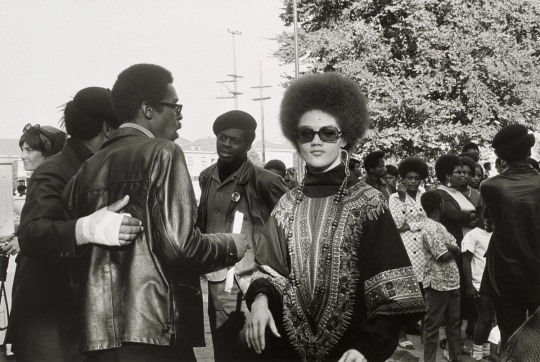
Pirkle Jones, Kathleen Cleaver and the Black Panthers (“Free Huey” rally, Bobby Hutton Memorial Park, Oakland, CA, Sept. 22, 1968, from: Black Panther), 1968–69.
What Kwanzaa Represents
Why would a holiday that teaches you about African culture, value, and coming together as a community and family be considered stupid? Because of programming, that is why it is essential to ground yourself and remember about your bloodline and who you are. You have been given back the opportunity to create businesses and shape the world how you want it to be, hence that I said "given back the opportunity." If a TikToker can influence the world with a simple dance then you can do anything you put your mind to.
Why Your Family Has Issues
Programming is dangerous and it is destroying our community, so before you blame your dysfunctional family, it is important to remember the reason it is dysfunctional. It is not because of your parents, it is because of the enslavement of your people that rearranged the black family structure to focus on survival and dominance. Could you imagine being enslaved and having your children pulled out of your arms to be killed or sent away? Could you imagine trying to be a good family man but you are forced to relocate and never see your family again? Or how about being forced to impregnate many women and not have the right to be an active father when you deeply wanted to? These things and more went on for thousands of years which affects the psychology of the future bloodline which is your grandparents, your parents, and you. Did you know that many black people were still working on plantations in the 1960's?
You Are What You Eat
They are still trying to separate our community in a roundabout way! What music are you listening to and what is it saying? Is the music telling you that you should disrespect, mistreat, and speak badly about your opposite gender? Or is it telling you to do drugs, disrespect people who are in poorer situations than you, and to praise money over morality? Before you blame the celebrities, you have to remember that they are working for the puppet masters, hence the word "masters." If you listen to the hip hop station there are barely or no songs that are positive for your brain but if you turn on the pop station then it is a little bit different... Listen to Tank talk about this. Music is not only about rhythm, it teaches you how to think and live your life.
December 26 2022- January 1, 2023
I will post each day during Kwanzaa about the 7 principles. (Series finished early)
I will post about teachings that our ancestors would have taught us during the end of each article.

Samiha Hamdi
The Black Panther Party had an established free breakfast program for children in 1969. The United States had a free breakfast program for children also but after the Black Panther Party it suddenly got funded more and took off in the early 1970's.
—
More Posts
Kwanzaa 2020
Kwanzaa 2021
Black & African Excellence Master List
Femininity Series Master List
#kwanzaa 2021#kwanzaa#afrocentric#black spirituality#black community#happy kwanzaa#nguzo saba#umoja#spiritual journey#kwanza#black woman writer#black writing#black woman magic#black woman appreciation#black artist#blackgirlbloggers#locs#holidays#blackholidays#black girl magic#black tumblr#kwanzaar#ancestors#ancestralhealing#Kwanzaa 2022#black womanhood#kujichagulia#ujima#ujamaa#kuumba
29 notes
·
View notes
Text
#african#afrakan#kemetic dreams#brownskin#afrakans#africans#african culture#afrakan spirituality#epic video#african spirituality#kwanza#happy kwanza
49 notes
·
View notes
Text
I am a retired child care provider. I created a curated list of time-tested toys. Shop & use for reference, for toy drives, gift exchanges, wishlists, charity donations, more. Feel free to share the list link.
I am an Amazon influencer, and may earn commission from select qualified purchases. This in no way influenced what I put on the list.
https://www.amazon.com/shop/sanetv/list/TPGQOSUU9REG?ref_=cm_sw_r_cp_ud_aipsflist_aipsfsanetv_W70GD66D98PTF6BX7ZGF

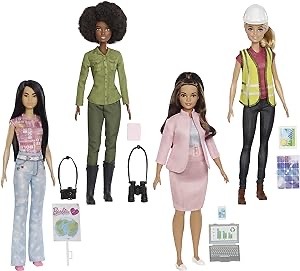

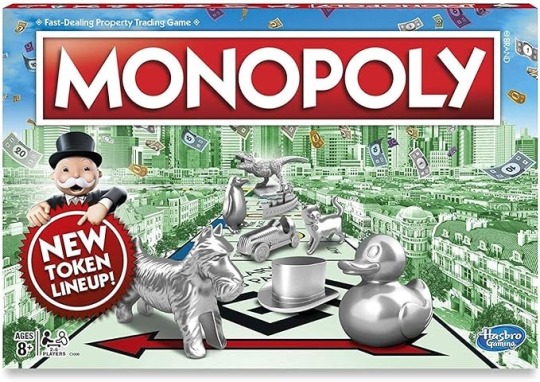
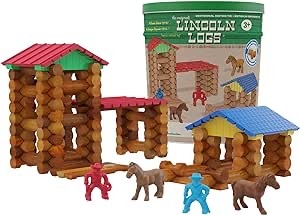

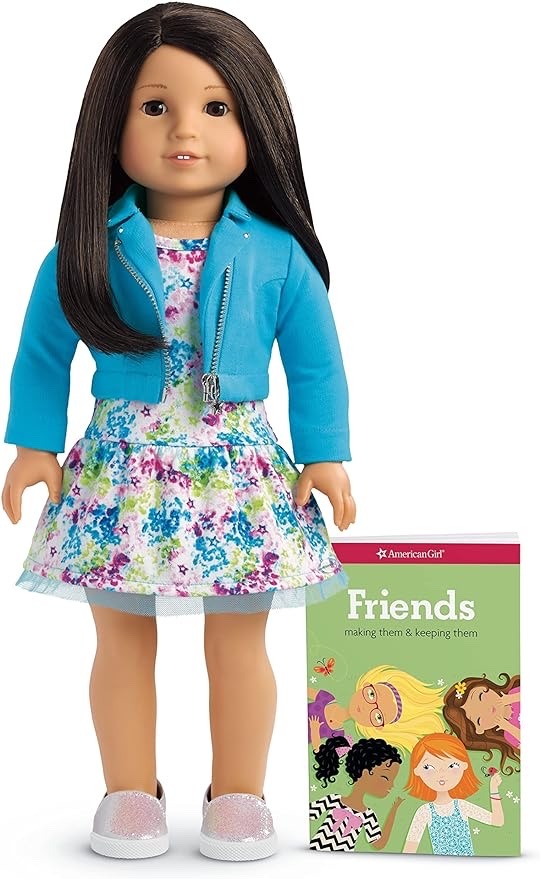

#holidays#gifts#kids#charity#toys for tots#toy drive#christmas#hannukah#kwanza#diwali#new years#birthday#gift ideas#idea list#affiliate marketing
3 notes
·
View notes

